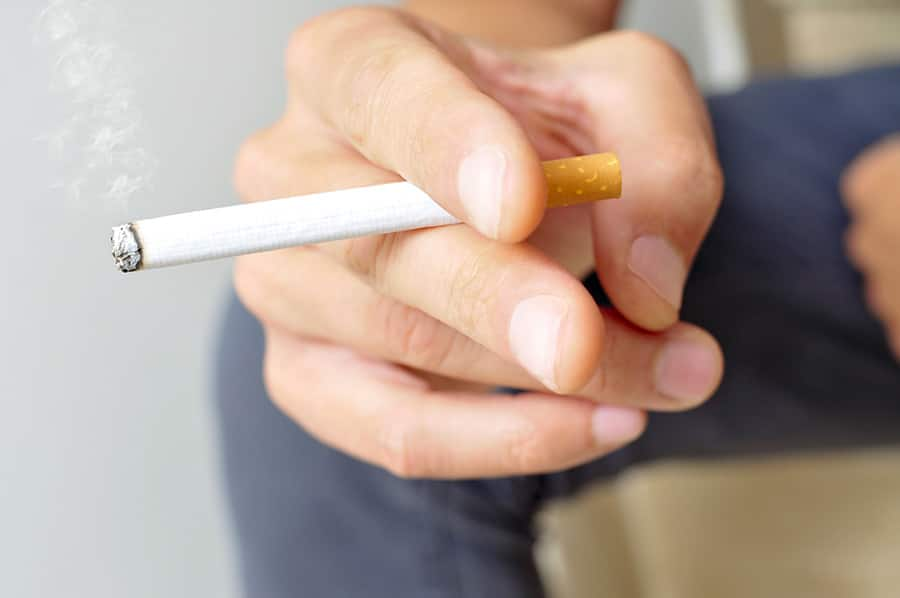Wisdom Teeth Removal
Your wisdom teeth are the last teeth in the back of your mouth's top and bottom rows (also known as your third morals) and are your last teeth to erupt. In some cases, your wisdom teeth will not be able to erupt into your mouth at the proper angle without disrupting your bite or the surrounding teeth. This condition is referred to as having impacted wisdom teeth.
Your dental professional may recommend extraction or coronectomy (removal of the tops of your wisdom teeth) to prevent your wisdom teeth from causing other dental problems. Some impacted wisdom teeth may not require any treatment at all.
Another important choice your dental professional will make for treating your wisdom teeth is how they will keep you as comfortable as possible and safe during the procedure. There’s no one-size-fits-all solution for anesthesia and sedation, so the right choice for your case will vary based on your health history and individual needs.
Read below, and we’ll outline the options for anesthesia and sedation during your wisdom teeth extraction or coronectomy.
Local Anesthesia
Local anesthesia refers to numbing a specific part or area of your body with medication. These come in both topical (applied as a liquid or gel) and injected forms.
This type of intervention is typically used for simple procedures to block pain signals from being sent to your central nervous system or brain. This ensures that you don’t feel pain (or any sensation at all!) from the numbed area.
Local anesthesia will not put you to sleep, make you unconscious, or change how you feel at all outside of the affected area. This makes it a great choice for easy recovery but may not be right for more invasive procedures if your discomfort would be too great.
According to the National Health Service, risks associated with local anesthesia may include:
- Neurological symptoms (such as the feeling of pins and needles)
- Allergic reaction and cardiac symptoms (rarely)
- Dizziness or blurred vision
- Muscle spasms
- Headaches
You should be able to drive yourself home after local anesthesia safely, and your affected area should regain sensation within several hours. Practice care while you are still anesthetized, as you may experience temporary difficulties with chewing and swallowing and could accidentally bite your cheeks, lips, or tongue. Your dentist will let you know when it's okay to eat after the procedure.
General Anesthesia
General anesthesia is not typically required for the removal of your wisdom teeth. Your dental professional may recommend this option in some cases, especially if the procedure is lengthy, complicated or if you experience high levels of stress. General anesthesia involves your dentist administering oral, intravenous (IV), or inhalable medications (or a combination thereof) to place you into an unconscious state.
Rest assured that from your perspective, it will feel similar to falling asleep and waking up. From your body’s perspective, you won’t respond to any reflexes or sensations of pain, differentiating it from local anesthesia that numbs one area. You will likely not remember anything from the procedure, and it will feel as if no time has passed at all or like you just woke up from a nap.
There are potential side effects, complications, and risks associated with general anesthesia that vary based on the type of medication used and your individual health history. Your dentist should discuss these with you before your procedure.
Your state of mind may be affected following general anesthesia, so you should avoid drinking alcohol, operating a motor vehicle, or signing legal documents for 48 hours following your procedure.
Sedation
According to the American Association of Oral and Maxillofacial Surgeons, sedation is used in some cases during the treatment of impacted wisdom teeth. Depending on the medications used and their dosage, you could be in one of three types of sedation:
1. Mild Sedation
To help keep you relaxed during your procedure, your dentist may recommend a mix of oxygen and nitrous oxide, also known as laughing gas. They will administer this tasteless, colorless medication through a wearable mask that you can breathe through comfortably. You will remain conscious but at ease while on laughing gas.
When it comes to laughing gas vs. anesthesia, this option is an attractive go-to if you’re prone to anxiety or are incredibly stressed about the procedure. According to the American Dental Association, nitrous oxide is considered both safe and effective.
Nitrous oxide typically wears off quickly, allowing you to drive yourself home after your procedure. However, sometimes your dentist will use a sedative in tandem with nitrous oxide and oxygen, in which case you will be unsafe to drive.
This technique (also called IV sedation) involves using intravenous (IV) medications to place you into a “twilight” state between waking and sleeping consciousness.
Despite being partially conscious, you should be relaxed and pain-free during the procedure. Your experience with moderate sedation will typically be similar to that of general anesthesia, where you don’t remember your treatment. The drugs used may also be similar to those used during general anesthesia but will vary in dosage.
Like moderate sedation, deep sedation uses similar drugs to general anesthesia and will place you into a lower state of arousal. During this state, you will not respond readily to most stimulation but are not entirely unconscious.
Your deep sedation experience will likely be going to sleep and waking up with no memory of the procedure.
Anesthesia and Sedation Safety
If you’re anxious about undergoing anesthesia or sedation, take comfort in the fact that your dental professional (typically a dentist, oral surgeon, or maxillofacial surgeon) has undergone specialized education to administer these drugs and monitor your health. They put your safety as the utmost priority to minimize the risks associated with these options.
Your dentist will likely take steps to ensure you’re healthy enough to undergo wisdom teeth extraction or a coronectomy, including considering your individual health history, your vitals (such as blood pressure and pulse), and what medications you take.
Helpful tip: While recovering from general anesthesia or sedation, it’s smart to plan a ride home. It’s crucial to follow your dental professional's recommendations for aftercare instructions to avoid putting yourself at risk following your procedure.
When learning about the different options to make you comfortable during the treatment of your impacted wisdom teeth, it's important to remember that there's no single best answer. The best choice for your specific history, health, and needs will vary and only your dental professional can make the final call. Rest assured that they're specially trained to make the procedure as painless and stress-free as possible.
Oral Care Center articles are reviewed by an oral health medical professional. This information is for educational purposes only. This content is not intended to be a substitute for professional medical advice, diagnosis or treatment. Always seek the advice of your dentist, physician or other qualified healthcare provider.
ORAL HEALTH QUIZ
What's behind your smile?
Take our Oral Health assessment to get the most from your oral care routine
ORAL HEALTH QUIZ
What's behind your smile?
Take our Oral Health assessment to get the most from your oral care routine















